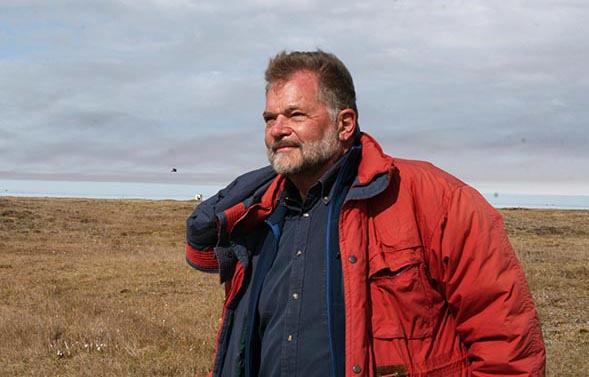Walter Oechel on the Paris Agreement
SDSU biology professor Walter Oechel weighs in on President Trumps decision to withdraw from the Paris Agreement.

The Paris Agreement (Accord de Paris) is an agreement within the United Nations Framework Convention on Climate Change (UNFCCC) aimed to limit global warming to less than two degrees Celsius (3.6 degrees Fahrenheit) above pre-industrial levels. Each participating country determines how it will reduce CO2 emissions to meet these goals and regularly reports its emissions to the UNFCCC.
148 countries have ratified the agreement. The only nations not part of the agreement are Syria, Nicaragua, and since June 1 of this year, the United States. President Donald Trump recently withdrew the United States from the Paris Agreement, saying the pact was not economically beneficial to the United States.
Perception of withdrawal
Walter Oechel is a San Diego State University biology professor and the director of the university’s Global Change Research Group. His research primarily focuses on developing and understanding the predictive capability of the interconnections of terrestrial, atmospheric and marine systems on global change. He has worked on several elevated atmospheric CO2 global warming and global change projects.“In recent weeks I have been in Poland, Italy and Spain,” said Oechel. "In speaking with scientific colleagues and the general public, my perception is that people feel it is ridiculous that the United States has withdrawn from the Paris Agreement, and they do not feel that President Trump’s actions represent the will of the American people.”
While the United States is responsible for less than 15 percent of the world’s CO2 emissions, Oechel notes the country’s largest impact would be in influencing the rest of the world, which is responsible for more than 85 percent of total CO2 emissions.
“By withdrawing from the Paris Accord, we virtually eliminate the ability and moral authority of the U.S. to put pressure on other countries to limit their CO2 emissions and meet the goals of the Paris Agreement,” said Oechel.
Grassroots efforts in the U.S.
Although the United States may not be implementing the Paris Accord at the federal level, many individual states and cities have vowed to follow through with the goals set forth in the Paris Agreement.“Aggressive leadership at the state and local level shows that one can have a strong economy while improving the environment and working towards a truly sustainable future” said Oechel.
Oechel has given testimony to the U.S. Senate Subcommittee, the United Nations, foreign governments and Capitol Hill.
“My conclusion from almost four decades of work is that climate change is caused by human activity, primarily the consumption of fossil fuels,” said Oechel. “Climate change poses huge risks to national and global sustainability, the quality of life, the natural ecosystem and our economy.”
Oechel said Southern California and other Mediterranean-type climate regions are likely to see increased drought, intensified wildfires and decreased water yield to water streams and reservoirs due to global warming. He explained that as the planet warms, net carbon dioxide and methane emissions to the atmosphere increase which accelerates human-induced global warming.
“It is clear that we have to switch to greater energy efficiency, and to sustainable, renewable, energy sources,” said Oechel. “However, the longer we delay, the more we lose our technical advantage worldwide and the more difficult and expensive will be corrective measures.”
